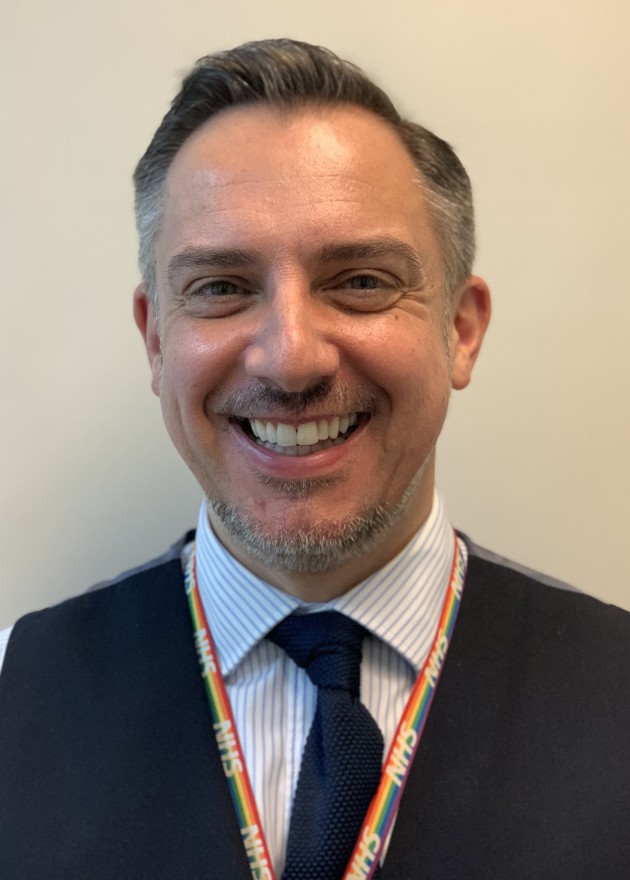Dr Matthew Grundy-Bowers - Nurse
 RESEARCH: HIV &SEXUAL HEALTH AND SEXUALITIES, IN PARTICULAR THE HUMAN EXPERIENCE.
RESEARCH: HIV &SEXUAL HEALTH AND SEXUALITIES, IN PARTICULAR THE HUMAN EXPERIENCE.
How did you get into research?
I have had a long interest in research. As a nurse practitioner I contributed to other people’s research e.g. recruiting participants. This sparked my interest in research and I took a course in research skills, which contributed to my undergraduate degree. I undertook further research modules and a dissertation for my Master’s degree. I became a consultant nurse in 2005 and research is a key component of the role. When I was first appointed I wasn’t quite aware how best to execute this aspect of my role, which led me to study for my PhD. I thought that the PhD would provide me with the sound theoretical and practical training in research. When I started my PhD the NIHR launched their clinical fellowships for Nurses, Midwives and Allied Health Professionals, I applied and was successful. My first empirical study was my doctoral research.
What do you enjoy about research?
There are many enjoyable aspects to being a clinical researcher. I particularly like working with people to find answers to issues that people face in everyday life, especially working with the study population and the research participants. Exploring and interrogating the data and discovering new things is another enjoyable aspect of the research process. One of the best things about being a clinical academic is supporting others embarking on their own research careers. For example I support members of the team who are undertaking empirical studies for their dissertations and help translate these into academic papers and conference presentations. In addition, I work with Nurses and AHPs across the Trust to give advice about study design, help with applications and do mock interviews for research studentships and doctorial fellowships. In my department alone we have had 4 successful Masters in Clinical Research NIHR studentships and 2 NIHR doctoral fellowships since I started my own NIHR fellowship.
What was the most difficult aspect of doing your PhD?
Whilst being incredibly rewarding, the PhD was the toughest thing I have ever attempted and achieved. Not just academically, but also managing the times where I had self-doubt in my abilities, but had to carry on and keep delivering. In addition, being in the first tranche of the NIHR clinical fellowship I felt an immense responsibility to ensure I did the best that I could do as I was representing Nursing. That said, it taught me a lot about myself including that with hard work and dedication I am able to succeed.
What difference has your research training and experience made to your career?
There are many ways undertaking research training has enhanced my career. I feel more confident to deliver the research aspects of my current role. It has undoubtedly increased my job satisfaction, not only through undertaking research and nurturing others, but also being invited to contribute to national research agenda’s such as the development of a national research strategy for HIV nursing.
How has research changed your clinical practice?
The skills and knowledge I have learned through my research training means I am better equipped to ensure that clinical practice within my service (both my own and the team’s) is evidence-based. The other way that research has changed my practice it that I am more aware and therefore notice gaps in the knowledge base and am equipped to consider how best to address this.
What has made a difference to progressing your research career?
There are several things which have made real difference to my research career. Firstly, working in an Academic Health Sciences Centre and being in a clinical academic role is enabling as I mix with fellow researchers and research time is built into my job plan. Secondly, being awarded an NIHR clinical fellowship provided an excellent research foundation and opened up networks. Finally, having close links with academic colleagues in Higher Education Institutions in sexualities and nursing.
Where do you see your clinical academic career going over the next five years?
As I am fortunate enough that I have research as a key component of my role and love my job as consultant nurse. I would like to continue undertaking research and supporting others within my current role. I would also like to continue developing others embarking on their clinical academic careers as well as continuing to undertake my own research projects.
Dr Matthew Grundy-Bowers, Consultant Nurse, Imperial College Healthcare NHS Trust and Visiting Professor of HIV and Integrated Sexual Health, University of Greenwich, matthew.grundybowers@nhs.net
To download Matthew's case study please click here: Matthew Grundy-Bowers -Case study (PDF)


